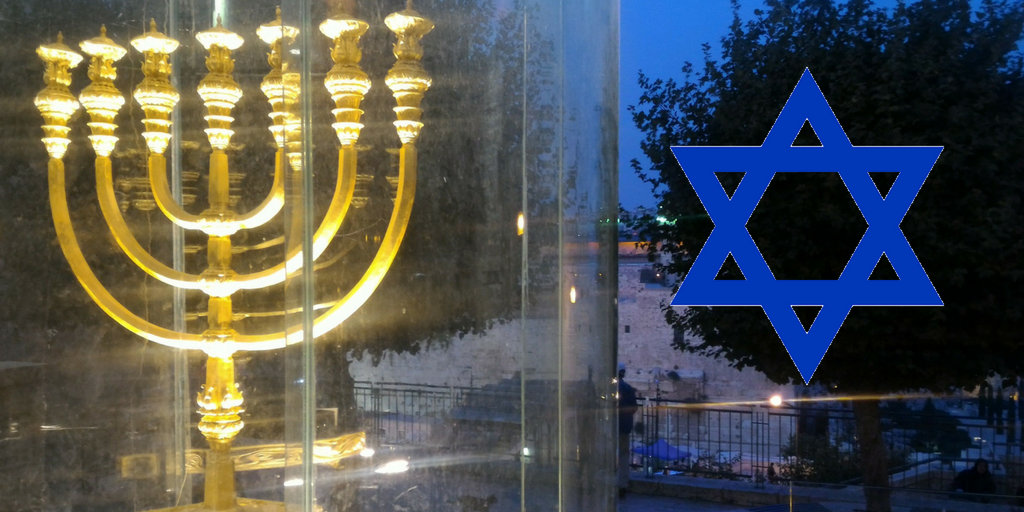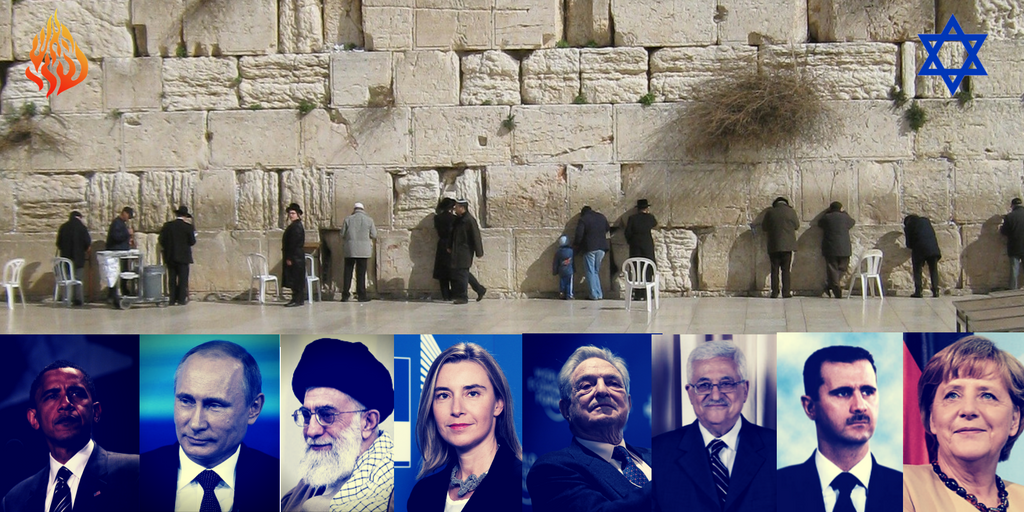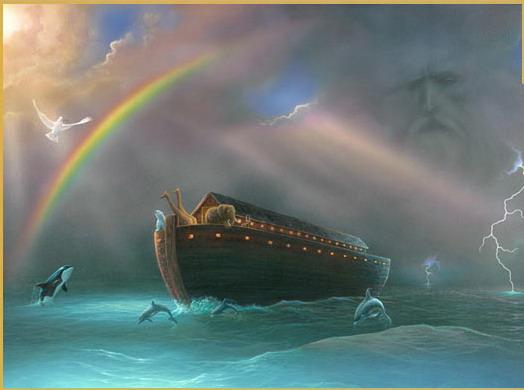The Torah begins with the dawn of Creation. To fully appreciate this narrative, one must recognize history to be more than a mere series of coincidences. There is a purpose to existence and a mission incumbent upon Israel to fulfill. Rashi explains the first verse of our Torah to teach that the entire reason for the description of Creation is to establish the G-D of Israel as the Creator and Master of the universe. HaShem creates, sustains and affectionately empowers all that exists. History has a goal and the ability for mankind to successfully reach this goal has been compassionately built into the system of Creation, existing specifically within the vehicle of Knesset Yisrael – the giant spiritual organism revealed in our world through the Jewish people in space and time. Israel’s earthly function is to perfect the world through the establishment of a kingdom that will manifest the Divine Ideal in all spheres of human behavior and bring all living beings to the awareness of themselves as unique sparks of the one and only absolute Reality – that there is nothing outside of Him and that all of Creation exists unified within Him. Israel’s mission of Divine perfection requires us to elevate this world to its highest potential – the initial ideal behind Creation from its inception.
History’s goal, clearly revealed only at the end of the process, is what has been pushing all major and minor occurrences from the start. All people and events up until today have only existed for the Divine goal that will be gloriously revealed through its ultimate fulfillment. Man – the crowning pinnacle of Creation – was not fashioned until the sixth day. Everything else appeared to have been set up in advance and the only thing introduced after human beings is the Shabbat. While it could be assumed that something as important as mankind or Shabbat should have been fashioned before all else, an explanation is found in the Lekha Dodi song, which states “sof ma’ase b’maḥashava t’ḥila” – “last in deed, first in thought.” Shabbat was the very last act of Creation but primary in the Kadosh Barukh Hu’s Divine blueprint for the world. Whenever a monumental project is envisioned, several preparations must be made for that project’s goal to be attainable. That there would be a weekly day of kedusha in our world was foremost in HaShem’s plan. But it was necessary for the entire universe to exist beforehand.
The same idea holds true for mankind. The finale reveals the original objective. In theShabbat Musaf tefillah, the first twenty-two words of the paragraph Tikanta Shabbatbegin with the letters of our alphabet in reverse order, moving from Tav to Aleph. This concept, referred to as Tashrak (Tav, Shin, Reish, Koof…), shows the Aleph as symbolizing the One – the Divine Ideal and universal awareness of HaShem as the infinite Whole in which we all exist. The Tav represents an illusion of multiplicity, symbolizing that which is seemingly base and material as opposed to the evidentkedusha expressed by the Aleph. The closer something comes to the Aleph – to its ultimate goal and true essence – the more explicitly its inner holiness is revealed. Projects of great value are generally built from the bottom up with secure foundations that appear insignificant when judged in isolation from the greater enterprise. While at the early stages of an endeavor, the full grandeur is hidden as it appears mundane or often even iniquitous, the concept of Tashrak teaches that the ideal comes at the end in order to reveal the kedusha of the entire process.
The Maharal of Prague teaches in Netzaḥ Yisrael that Creation begins with the most mundane creatures and then leads up to the formation of man and eventually Israel. He points out that Am Yisrael was the last of the nations to enter the stage of history while every other people had previously existed. Israel was created last, but possesses within our collective soul the ability to achieve man’s lofty mission of bringing every living creature to fully actualize and express itself as a unique aspect of the greater ultimate Reality we call HaShem.

The purpose of Creation is to build a world of total perfection where all will recognize HaShem as not only the Creator and Divine Source of all that exists but also as transcending all of existence and beyond. It is the Hebrew mission to achieve a world that is entirely just and harmoniously unified in the universal recognition and awareness of this truth.
“And G-D saw all that He had made, and behold it was very good.” (BEREISHIT 1:31)
The Rambam comments that everything was fit for its exact purpose and able to function appropriately within Creation. He further teaches in the fifth chapter of his introduction to Pirkei Avot that “Man should place one goal before his eyes: the comprehension of G-D – glorified be He – to the full extent of mortal potential. This means to know Him. One should divert all of his activities, endeavors and even his relaxation toward that goal, to the extent that none of his activities are purposeless – i.e., that they do not lead to this goal.”
The Divine Oneness of HaShem and the harmonious unity of existence within Him is the deterministic blueprint of all human history that will be revealed to mankind through the story of the Hebrew Nation. The Kingdom of Israel will rise and – as the heart of mankind – pump Divine blessing to the rest of humanity. Political independence in our historic homeland is the prerequisite for our bringing the world towards perfection and higher consciousness. The national rebirth of the Jewish people in Eretz Yisrael brings with it an entire revolution in the thinking of man. Concepts of morality, justice and truth will be clarified and elevated beyond their current human limitations through Israel’s ascension and exemplary example. This will occur through the Jewish people living a full and all-encompassing national life of kedusha that infuses every sphere of human existence with meaning and blessing, from sanitation and social services to governance and diplomacy. The light of HaShem’s Ideal will be perceived in every detail of life as His chosen people builds a model society on the land uniquely created for this mission. The ultimate good pushing history forward from the start will be revealed through the redemption of the Hebrew Nation.
The Tur, commenting on the Shulḥan Arukh (Oraḥ Ḥaim 286), discusses the notion of Tashrak regarding Israel’s redemption. The concept of the Divine Ideal becoming exposed in all of its glory at the end of a seemingly mundane process refers specifically to the redemption of the Jewish people.
History has already begun to witness the process of our redemption through the Land of Israel bringing forth abundant produce after so many centuries of dismal infertility. The ancient Hebrew language has experienced an unbelievable revival and the Jewish people has gained sovereignty over much of Eretz Yisrael. Israel has achieved miraculous victories in war and tremendous innovations in the fields of medicine and technology.
While some may still doubt the spiritual value and extraordinary significance of what is transpiring, these skeptics can rest assured that when history reaches the Aleph of the process, all will be able to appreciate the kedusha of even the seemingly extraneous Tav. Even that which appeared to be secular, or at times even hostile to our ancient collective yearnings, has come only to prepare the way for the full expression of HaShem’s Ideal for this world. The strong physical body of the Hebrew Nation reborn in our land – first erected by Jewish pioneers and statesmen seemingly uninterested in Israel’s Torah – has been built for the purpose of housing the giant spirit that will bring all Creation full circle to its ultimate goal – the Aleph that has been pushing since the beginning of time.





